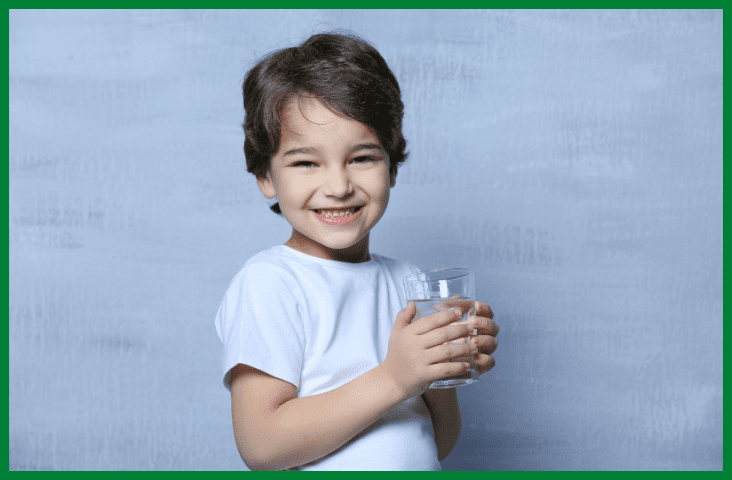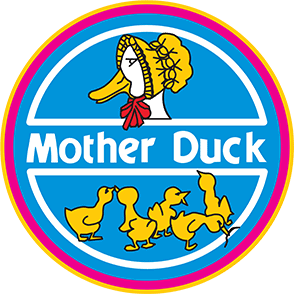
Happy, Healthy Hydrated Children– How to know if they’re drinking enough
As a dietitian who is also a mum, I’m often asked about foods or nutrients that children need to keep them healthy. However, one aspect that is so often forgotten is water. It’s quite surprising, given how important a regular supply of fluid is to our bodies. From playing to learning, how well our little ones are hydrated impacts them throughout their day. And with the weather warming up, it’s even more important to keep an eye on it. Read on to find out if your little person is drinking enough.
Why is it important that our kids drink enough?
We don’t just need fluids to stop us from feeling thirsty. It’s a vital part of many body processes for both children and adults. These include digestion, absorption and transportation of other nutrients, and controlling body temperature.
While drinking enough is important for all of us, it’s even more critical for our children. Their smaller bodies become dehydrated more easily for several reasons. The smaller children are, the higher the proportion of their bodies that are made of water: 75% of a newborn baby’s body is water, dropping to 70% for a child, and around 55-60% for adults. In spite of this, children are often less able to recognise when they are thirsty. And by the time they feel thirsty enough to seek out a drink, they may already be mildly dehydrated. Another issue, and one that puts the emphasis on us, is that younger children are also dependant on adults to get drinks for them. Of course, the littlest children are not even able to ask for a drink, so are completely reliant on their grown-ups to remember to offer them.

Are our children drinking enough?
Researchers say probably not. A study published in 2017 looked at British children and found that a massive 84% of four to eight-year-olds weren’t drinking the recommended amount of fluid. And it’s not just the smaller children. A 2015 study in the USA found that more than half the children and teens (aged 6-19) they surveyed were not well enough hydrated. An interesting fact this study uncovered was that boys were much more likely to be dehydrated than girls – yet another thing for parents and carers of boys to watch out for!
How much fluid is needed?
Up until the age of 6 months, breastfed babies will get all the fluid they require from breastmilk. Formula-fed babies can be offered some boiled and cooled water in hot weather.
Once they are old enough to use a baby cup, usually around six months, children can be offered a drink of water with weaning meals. The aim is to be using a cup, rather than a bottle, with meals and snacks by about one year old.
The size of drinks children manage will vary by age. Children around 1-2 years old might only have a quarter or half cup at a time, whereas an active 5-year-old might manage most of a cup per drink. The total intake should add up to around the recommended amounts of:
- 0.6 litres per day for 7-12-month-olds – it’s assumed that most of this will come from breastmilk or formula
- 1 litre (about 4 cups) per day for 1-3-year-olds
- 1.2 litres (about 5 cups) per day for 4-8-year-olds
If the weather is very warm or children are very active, they are likely to require a bit more fluid. It’s also good to offer extra drinks during illness such as vomiting, diarrhoea or fever.
It’s helpful to remember that not all of this amount has to be made up of water. All other drinks are mostly made of water, so juices, cordials, milk and fizzy drinks are included. Soups and foods than turn into liquids also count, such as jelly or ice blocks. However, for the sake of our little ones’ health and teeth, it’s best that most of the allowance is made up of water and some milk.

What happens if we don’t drink enough?
Of course, being very dehydrated can be life-threatening, but even just getting a little dehydrated can affect our kids in many ways. These range from an impact on learning, whether it’s older children in school or preschool, or younger children learning through play. Poorly hydrated children can also be grumpy or tired, which can have a negative impact on social interactions, and may be more likely to get headaches.
If you’re not sure if your little one is getting enough fluid, try keeping a record of how much they drink for a few days. On a ‘home’ day you could try filling a bottle with the daily recommended amount of water (excluding the milk they’re likely to drink) and see if it’s empty by the end of the day.
It’s always wise to be on the lookout for signs of dehydration, especially if it’s very hot or your child is unwell. Warning signs are very yellow wee or not weeing regularly through the day (or infrequent wet nappies), a dry mouth, and a lack of tears when your child is crying. You may also notice extra fussy or lethargic behaviour.
How can we help our children to drink more?
It can be tricky to convince children to drink water – you may get calls for fizzy drinks or cordial or chocolate milk instead! Try to give a consistent message that water or milk are the ‘everyday’ drinks, and sweet drinks are treats for special occasions. Having water on the table at every meal will help to emphasise this, as will always having a drink bottle or sippy cup when you’re out and about. Make it kid-sized, partly to make it easier to handle and fit in a smaller bag or backpack, and partly so it doesn’t look like such a massive amount to get through to a smaller-sized person.

Here are a few ideas to make a glass of water more interesting:
- Add a refreshing zing with a squeeze of lemon or lime juice, or a few sprigs of fresh mint.
- Freeze ice cubes in unusual shapes, or use a little brightly coloured juice such as cranberry juice to create coloured ice cubes to add to water. You could also use frozen fruit chunks as ice cubes.
- Mash a few raspberries or strawberries in the bottom of a glass and top up with fizzy mineral water.
- Mix chopped berries or pineapple chunks into a jug of water and refrigerate for a few hours to allow the flavours to mingle.
- Keep a star or sticker chart for a few weeks to encourage enough daily drinks. Hopefully, this will help to form a healthy long-term habit.
- Choose a water bottle that’s freezer safe, and fill it the evening before childcare or outings for icy-cold water all day long.
- Make up a special dance or silly song together to celebrate an empty water bottle.
- Mark lines on water bottles to show how much should be drunk by morning snack, lunchtime and so on
- Set hourly or two-hourly alarms on your phone to remind you to remind kids to have a drink, especially if you’re out somewhere warm or being active.
- Have a routine that prompts drinks, for example, all having a drink of water when you get home from nursery or childcare, or putting cups of water on the table for every meal.
- Always take a water bottle when you go out, and ask for water in restaurants and cafes. Kids will see your example showing that water, rather than a sweet drink, is the best option. As a bonus, you’ll save a few dollars too.

A happy family is a hydrated family
As is so often the case, what’s good for our children is good for us, the grown-ups, too. Many adults are also often slightly dehydrated, which can affect our performance at work and at sports, as well as increase our chance of having headaches. And a dehydrated parent or carer has a higher chance of being a grumpy parent or carer! A great way of encouraging our children is to make sure they see their grown-ups enjoying drinking water – this good example can help to keep the whole family hydrated and happy.
©Fiona Hinton 2022
MEDICAL DISCLAIMER: Please note that this blog is for general information only, and should not be taken as a substitute for qualified medical advice. Please discuss medical issues with your child’s doctor before taking any action.
About Fiona: Fiona Hinton is a dietitian, but describes herself as a nutrition translator, taking the science of nutrition and translating it into foods we love to eat, to nourish both body and soul. She has over 20 years of experience as a dietitian, working in a wide range of areas from hospital wards to running her own private practice. Fiona has a special interest in children’s nutrition. As a mum of three school-age boys, she has first-hand experience of the issues associated with feeding young children, such as weaning and fussiness. Fiona specialises in real-life strategies and practical suggestions to convert nutrition advice into food kids will eat. Fiona has collaborated on several books, including one with best-selling children’s food writer Annabel Karmel, as well as training childcare staff in children’s nutrition.


